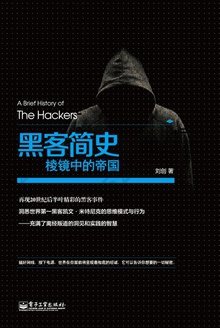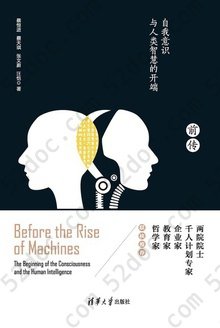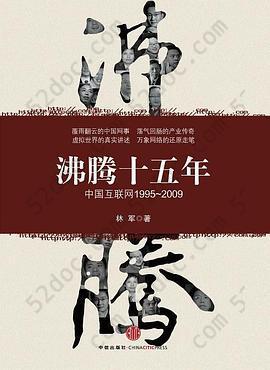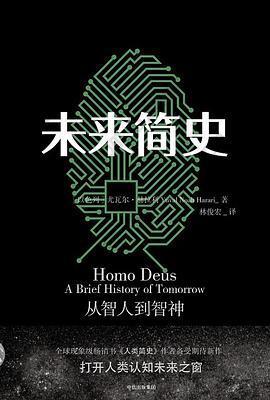注重体验与质量的电子书资源下载网站
分类于: 计算机基础 人工智能
简介
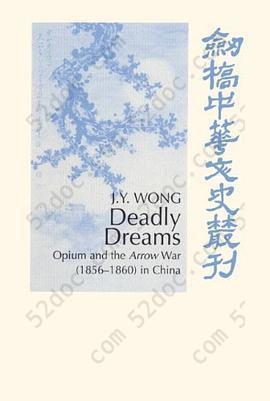
Deadly Dreams: Opium and the Arrow War 豆 0.0分
资源最后更新于 2020-08-20 14:03:47
作者:J. Y. Wong
出版社:Cambridge University Press
出版日期:1998-01
ISBN:9780521552554
文件格式: pdf
标签: 黄宇和 鸦片战争 英语学术类书籍 第二次鸦片战争 清史 历史 鸩梦 鸦片
简介· · · · · ·
Many have accepted that the Arrow War (1856-60) was caused by an insult to the British flag belonging to the pirate boat Arrow. Dr. Wong argues that Britain's reliance on the opium trade with China played a far greater role in pushing the diplomatic conflict into war. The war was not a simple diplomatic squabble: it involved vital economic interests in British India, which had ...
目录
Cover 1
Title 7
Copyright 8
Dedication 9
Contents 11
List of Tables 13
List of Figures 17
Poem by the late Mr Qin Esheng 19
Foreword by Professor Wang Gungwu 21
Foreword by Professor C. A. Bayly 23
Preface 25
I The confusion of imperialism 33
1 An attempt to peel the onion of confusion 35
I. The confusing events 35
II. The bewildering issues 40
III. Current scholarship 44
IV. The search for information 48
V. Technology and imperial decision making 54
VI. My approach 56
VII. Economic causation versus strategic interpretation 60
VIII. Contrasts with established views 63
IX. In sum 71
II The pretext for imperialism 73
2 An international incident: 'That wretched question of the Arrow 75
I. The history of the arrow 75
II. How the evidence of both sides was taken 77
III. An assessment of the evidence on both sides 82
IV. Why give false evidence? 88
V. The law lords: was the british flag flying? 92
VI. In sum 94
III The personalities of imperialism 99
3 Harry Parkes: 'If you would read a little international law.' 101
I. Introduction 101
II. Parkes's manipulation of bowring 102
III. Escalating demands 106
IV. Leading the royal navy on 107
V. The house of lords on parkes's conduct 112
VI. In sum 114
4 Sir John Bowring: Possessed by a monomania 116
I. Why was bowring led on by his young consul? 116
II. The arrow incident and the canton city question 119
III. The canton city question and an undeclared war 127
IV. The tables turned 129
V. The house of lords on bowring's conduct 135
VI. The canton city question in the eyes of their lordships 137
VII. In sum 140
5 Commissioner Yeh: A 'monster'? 141
I. Introduction 141
II. Yell's handling of the arrow incident 143
III. The canton city question: the early phase 146
IV. The canton city question: the diplomatic coup of 1849 150
V. The canton city question: the trojan horse 153
VI. A real monster? 159
6 Rule, Britannia and vox populi, vox Dei 160
I. Introduction 160
II. Popular xenophobia or protonationalism? 160
III. Patriotism or sedition? 164
IV. Popular xenophobia? civis romanus sum 166
V. Official xenophobia? rule britannia 172
VI. In sum 180
IV The rhetoric of imperialism 183
7 Marx, Punch, and a political press: The debate among the British newspapers 185
I. Peace or war: the times 185
II. The tirade against yeh: the morning post 188
III. The eulogies for yeh: the daily news et al. 191
IV. 'About the english of it: punch 193
V. Marx on the arrow quarrel: the new york daily tribune 197
VI. A political press 199
VII. In sum: no watergate 205
8 The Arrow incident and international law: The debate in the House of Lords 206
I. Was an insult intended? 207
II. Was the arrow entitled to fly the british flag ? 209
III. The expiry of the arrow's regist 213
IV. British legal arguments and chinese perceptions of the origins of the war: an assessment 215
V. Justice and humanity 217
VI. The china trade 220
VII. An unavoidable subject: opium 221
VIII. In sum 223
9 Triumph of the liberal conscience: The debate in the House of Commons 225
I. What were the motives behind the pretext for war? 225
II. 'We have been insulted' 228
III. 'Let the punishment fit the crime' 230
IV. Jingoism 232
V. The defence of bowring 235
VI. Technicalities and generalities 236
VII. The china trade 239
VIII. The opium trade 241
IX. The penal dissolution 243
X. 'As if I had been in a jury-box' 244
XI. In sum 246
10 'Johnny' is on his knees: The 'Chinese Election' 248
I. George cruikshank wields his pen 248
II. Company men close ranks 250
III. A cat among the pigeons 255
TV. The wicked must be punished 258
V. The firebrand flares up 261
VI. Mind your language 264
VII. Long live palmerston 267
VIII. Down with the 'chinese coalition' 270
IX. 'Johnny' is on his knees 272
X. The raging 'jesuit' 279
XI. The 'peacemonger' takes refuge in huddersfield 280
XII. A parliament of 'nobodies' 282
XIII. Election postmortem 284
V The mechanics of imperialism 291
11 Behind the scenes: The diplomacy of imperialism 293
I. Business as usual 293
II. Treaty revision 294
III. Seeking french allies: trade and treaty revision 298
IV. Seeking U.S. allies: trade and freedom of opinion 304
V. Seeking russian allies: trade and territorial expansion 308
VI. More questions 312
12 Behind the scenes: The politics of imperialism 315
I. Commercial interests 315
II. The liberal conscience 324
III. Party politics 329
IV. Behind parliamentary rhetoric 332
V. A political sacrifice 334
VI. Argumentum baculinum 338
13 In the wings: The lobbies of imperialism 342
I. Commercial expansion 342
II. Territorial expansion 344
III. Colonial expansion 348
IV. Missionary expansion 351
V. The anti-opium lobby: a motion withdrawn 354
VI. Questions unanswered 360
VI The economics of imperialism 363
14 Anglo-Chinese trade: The Chinese should buy more 365
I. Export of british manufactures to china 365
II. The apparent british trade imbalance with china 367
III. British imports from china 369
IV. China's place in the united kingdom's imports globally 371
V. British import duty on chinese tea 375
VI. The importance of tea duty compared with the united kingdom's other sources of revenue 378
VII. Tea duty could almost sustain the royal navy 381
VIII. China: the major supplier of tea 385
IX. Imports of chinese silk 390
X. In sum 394
15 China's maritime trade: The Chinese could buy more 395
I. Introduction 395
II. Re-exports of foreign and colonial manufactures to china direct from the united kingdom 396
III. China also bought british Indian products 399
IV. Total 'british' exports to china 399
V. British trade surplus with china 401
IV. Quantifying the drain of silver from china 404
V. Bills of exchange from china 404
VIII. Verifying the triangular trade perception 406
IX. Evaluating 'free-trade imperialism 410
16 The problem of India: The Chinese should and could buy more 416
I. A debt-ridden india 416
II. Opium revenue serviced the growing india debt 420
III. Opium revenue in bengal 420
IV. Opium revenue in bombay 424
V. The place of opium in india's revenues 426
VI. Nearly all the opium went to china 429
VII. Opium, tea, silk, and the united kingdom's global trade balance 436
VIII. The role of chinese silver bullion in the Indian economy 440
IX. What if opium were suppressed in china? 443
X. Further assessment of 'free-trade imperialism' 446
XI. Control of the opium market in china 447
XII. Justifying the annexation of sind 450
XIII. Free trade versus imperial interests 455
XIV. 'Expansion by poison' and other interpretations 460
17 The balance sheet: The Chinese are now buying more 464
I. Imports: tea 464
II. Imports: raw silk 466
III. British exports 471
IV. Exports: war materials 482
V. In sum 483
VII The dynamics of imperialism 485
18 Conclusion 487
I. The confusion of imperialism 487
II. The pretext for imperialism 489
III. The personalities of imperialism 491
IV. The rhetoric of imperialism 493
V. The mechanics of imperialism 495
VI. The economics of imperialism 496
VII. Ascertaining the origins of the arrow war 497
VIII. Reassessing some entrenched interpretations 500
IX. The wider picture: some theories on the working of imperialism 502
X. The wider picture: some theories on the working of chinese foreign policy 508
XI. The still wider perspective: the rise and fall of great powers 512
Chronology of major events 517
Word list 520
Abbreviations 524
Bibliography 525
Index 55
Title 7
Copyright 8
Dedication 9
Contents 11
List of Tables 13
List of Figures 17
Poem by the late Mr Qin Esheng 19
Foreword by Professor Wang Gungwu 21
Foreword by Professor C. A. Bayly 23
Preface 25
I The confusion of imperialism 33
1 An attempt to peel the onion of confusion 35
I. The confusing events 35
II. The bewildering issues 40
III. Current scholarship 44
IV. The search for information 48
V. Technology and imperial decision making 54
VI. My approach 56
VII. Economic causation versus strategic interpretation 60
VIII. Contrasts with established views 63
IX. In sum 71
II The pretext for imperialism 73
2 An international incident: 'That wretched question of the Arrow 75
I. The history of the arrow 75
II. How the evidence of both sides was taken 77
III. An assessment of the evidence on both sides 82
IV. Why give false evidence? 88
V. The law lords: was the british flag flying? 92
VI. In sum 94
III The personalities of imperialism 99
3 Harry Parkes: 'If you would read a little international law.' 101
I. Introduction 101
II. Parkes's manipulation of bowring 102
III. Escalating demands 106
IV. Leading the royal navy on 107
V. The house of lords on parkes's conduct 112
VI. In sum 114
4 Sir John Bowring: Possessed by a monomania 116
I. Why was bowring led on by his young consul? 116
II. The arrow incident and the canton city question 119
III. The canton city question and an undeclared war 127
IV. The tables turned 129
V. The house of lords on bowring's conduct 135
VI. The canton city question in the eyes of their lordships 137
VII. In sum 140
5 Commissioner Yeh: A 'monster'? 141
I. Introduction 141
II. Yell's handling of the arrow incident 143
III. The canton city question: the early phase 146
IV. The canton city question: the diplomatic coup of 1849 150
V. The canton city question: the trojan horse 153
VI. A real monster? 159
6 Rule, Britannia and vox populi, vox Dei 160
I. Introduction 160
II. Popular xenophobia or protonationalism? 160
III. Patriotism or sedition? 164
IV. Popular xenophobia? civis romanus sum 166
V. Official xenophobia? rule britannia 172
VI. In sum 180
IV The rhetoric of imperialism 183
7 Marx, Punch, and a political press: The debate among the British newspapers 185
I. Peace or war: the times 185
II. The tirade against yeh: the morning post 188
III. The eulogies for yeh: the daily news et al. 191
IV. 'About the english of it: punch 193
V. Marx on the arrow quarrel: the new york daily tribune 197
VI. A political press 199
VII. In sum: no watergate 205
8 The Arrow incident and international law: The debate in the House of Lords 206
I. Was an insult intended? 207
II. Was the arrow entitled to fly the british flag ? 209
III. The expiry of the arrow's regist 213
IV. British legal arguments and chinese perceptions of the origins of the war: an assessment 215
V. Justice and humanity 217
VI. The china trade 220
VII. An unavoidable subject: opium 221
VIII. In sum 223
9 Triumph of the liberal conscience: The debate in the House of Commons 225
I. What were the motives behind the pretext for war? 225
II. 'We have been insulted' 228
III. 'Let the punishment fit the crime' 230
IV. Jingoism 232
V. The defence of bowring 235
VI. Technicalities and generalities 236
VII. The china trade 239
VIII. The opium trade 241
IX. The penal dissolution 243
X. 'As if I had been in a jury-box' 244
XI. In sum 246
10 'Johnny' is on his knees: The 'Chinese Election' 248
I. George cruikshank wields his pen 248
II. Company men close ranks 250
III. A cat among the pigeons 255
TV. The wicked must be punished 258
V. The firebrand flares up 261
VI. Mind your language 264
VII. Long live palmerston 267
VIII. Down with the 'chinese coalition' 270
IX. 'Johnny' is on his knees 272
X. The raging 'jesuit' 279
XI. The 'peacemonger' takes refuge in huddersfield 280
XII. A parliament of 'nobodies' 282
XIII. Election postmortem 284
V The mechanics of imperialism 291
11 Behind the scenes: The diplomacy of imperialism 293
I. Business as usual 293
II. Treaty revision 294
III. Seeking french allies: trade and treaty revision 298
IV. Seeking U.S. allies: trade and freedom of opinion 304
V. Seeking russian allies: trade and territorial expansion 308
VI. More questions 312
12 Behind the scenes: The politics of imperialism 315
I. Commercial interests 315
II. The liberal conscience 324
III. Party politics 329
IV. Behind parliamentary rhetoric 332
V. A political sacrifice 334
VI. Argumentum baculinum 338
13 In the wings: The lobbies of imperialism 342
I. Commercial expansion 342
II. Territorial expansion 344
III. Colonial expansion 348
IV. Missionary expansion 351
V. The anti-opium lobby: a motion withdrawn 354
VI. Questions unanswered 360
VI The economics of imperialism 363
14 Anglo-Chinese trade: The Chinese should buy more 365
I. Export of british manufactures to china 365
II. The apparent british trade imbalance with china 367
III. British imports from china 369
IV. China's place in the united kingdom's imports globally 371
V. British import duty on chinese tea 375
VI. The importance of tea duty compared with the united kingdom's other sources of revenue 378
VII. Tea duty could almost sustain the royal navy 381
VIII. China: the major supplier of tea 385
IX. Imports of chinese silk 390
X. In sum 394
15 China's maritime trade: The Chinese could buy more 395
I. Introduction 395
II. Re-exports of foreign and colonial manufactures to china direct from the united kingdom 396
III. China also bought british Indian products 399
IV. Total 'british' exports to china 399
V. British trade surplus with china 401
IV. Quantifying the drain of silver from china 404
V. Bills of exchange from china 404
VIII. Verifying the triangular trade perception 406
IX. Evaluating 'free-trade imperialism 410
16 The problem of India: The Chinese should and could buy more 416
I. A debt-ridden india 416
II. Opium revenue serviced the growing india debt 420
III. Opium revenue in bengal 420
IV. Opium revenue in bombay 424
V. The place of opium in india's revenues 426
VI. Nearly all the opium went to china 429
VII. Opium, tea, silk, and the united kingdom's global trade balance 436
VIII. The role of chinese silver bullion in the Indian economy 440
IX. What if opium were suppressed in china? 443
X. Further assessment of 'free-trade imperialism' 446
XI. Control of the opium market in china 447
XII. Justifying the annexation of sind 450
XIII. Free trade versus imperial interests 455
XIV. 'Expansion by poison' and other interpretations 460
17 The balance sheet: The Chinese are now buying more 464
I. Imports: tea 464
II. Imports: raw silk 466
III. British exports 471
IV. Exports: war materials 482
V. In sum 483
VII The dynamics of imperialism 485
18 Conclusion 487
I. The confusion of imperialism 487
II. The pretext for imperialism 489
III. The personalities of imperialism 491
IV. The rhetoric of imperialism 493
V. The mechanics of imperialism 495
VI. The economics of imperialism 496
VII. Ascertaining the origins of the arrow war 497
VIII. Reassessing some entrenched interpretations 500
IX. The wider picture: some theories on the working of imperialism 502
X. The wider picture: some theories on the working of chinese foreign policy 508
XI. The still wider perspective: the rise and fall of great powers 512
Chronology of major events 517
Word list 520
Abbreviations 524
Bibliography 525
Index 55



